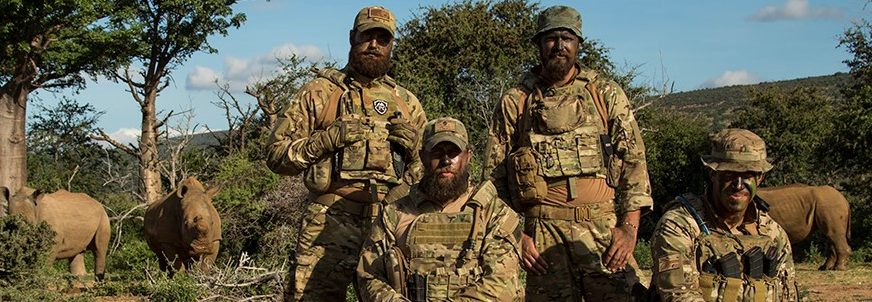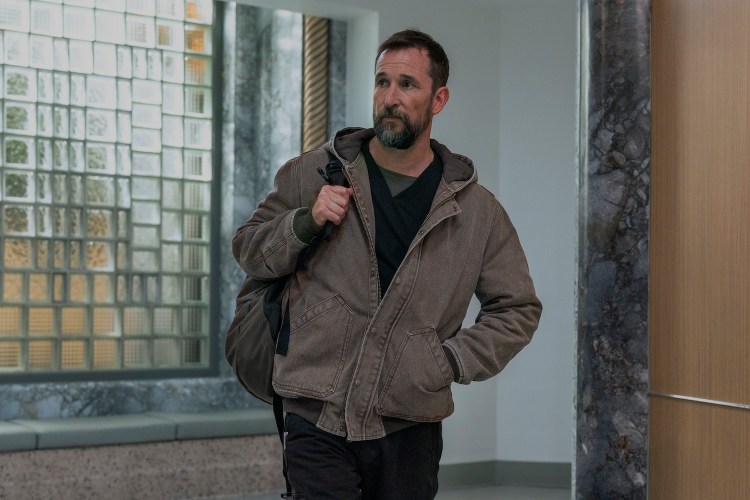Ryan Tate has experienced more in 16 years than most will in an entire lifetime. Growing up in Tampa, Florida, the son of a hair stylist and pizza shop/bar owner, Tate was a self-described quiet kid, skinny and blonde, who enjoyed playing soccer and hockey and loved animals. In other words, your average teenage boy.
At age 16, his life aspirations included a career in the armed forces—something that many young men mull while taking the PSATs and thinking about those impending college loans. But Tate lacked direction; he didn’t have a clue which branch he wanted to serve in; it was just a dream. And then September 11, 2001, happened.
Tate remembers being in Ms. Rodriguez’s English class that morning, when another teacher burst in and said, “A plane just hit the World Trade Center … turn on the TV.” His teacher acquiesced, and in real time, the horrified classroom watched as the second plane hit the towers.
That day, Tate says he decided he wanted in on the U.S. Marine Corp—and the front lines. There was just one problem: At 16, he was too young to enlist; you have to be within a year of your 18th birthday to do so. So he had his parents sign a waiver—basically, promising their son’s life to the Marines—and upon graduation in 2003, he headed off to boot camp.
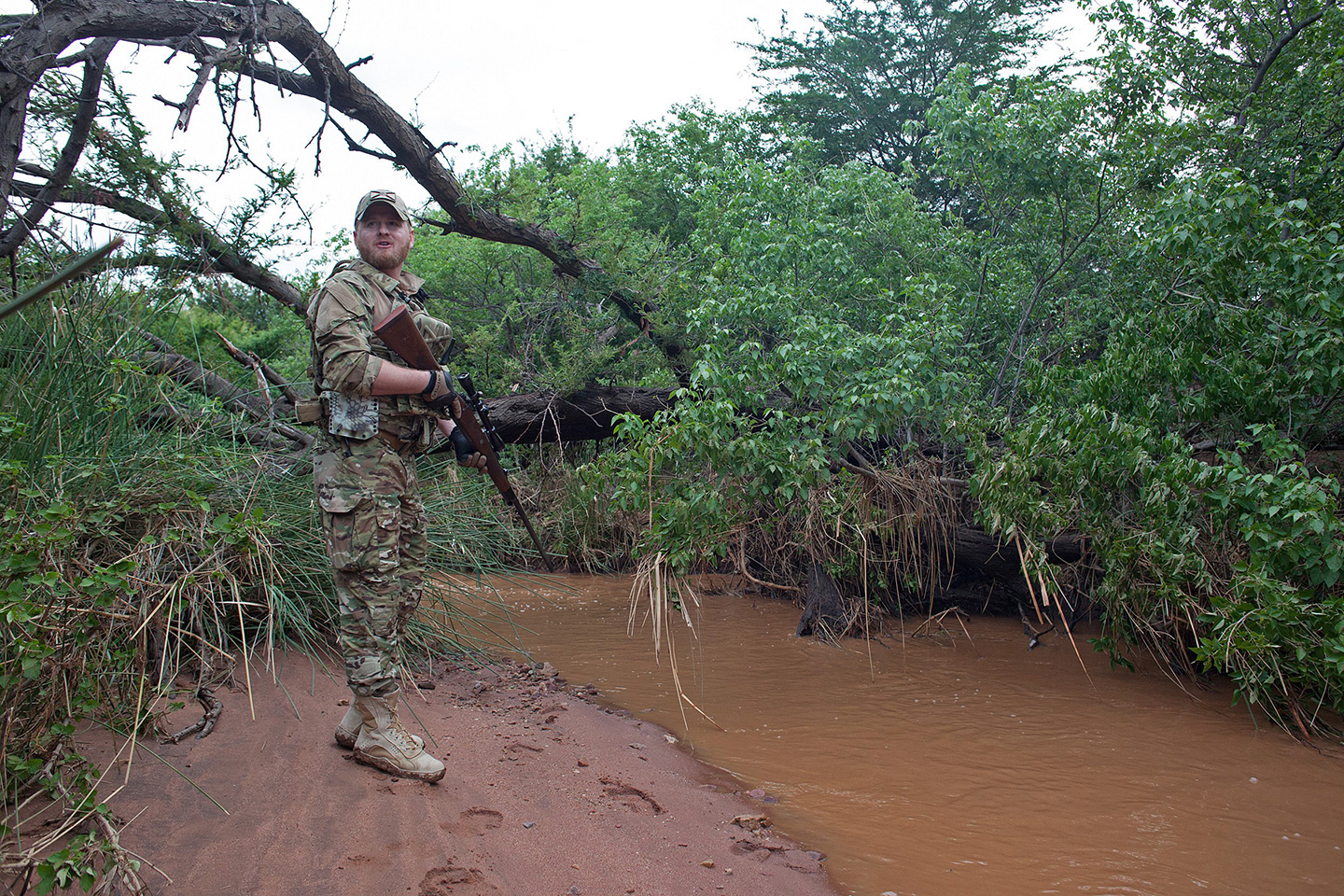
Soon enough, he was stationed at Camp Lejeune in Jacksonville, North Carolina, where he trained as an infantryman and worked as a marksmanship instructor. “I grew up in the South and I have Southern family members, so I shot at gun ranges and in backyards in the middle of nowhere,” Tate admits of his rudimentary background in firearms. “But I wasn’t a hunter, [and] I didn’t know a ton about guns,” he explains. It turned out that Tate was a natural, shooting what is known as “Expert,” or the highest possible score a Marine marksman can garner. “I don’t like to boast, but I’m a very good shooter. It was something that was calming to me,” explains Tate, “in a non-morbid way.”
While some servicemen devote their lives to the Corp, it wasn’t in the stars for Tate; he would be out of the Marines by 2007. But not before he served a year and a half in Southeast Asia, where he and his fellow soldiers supported in the cleanup following the 2004 tsunami that crippled Indonesia. Then, he got what he believed was “the call”: He was to be deployed to Afghanistan with the 21st Marine Expeditionary Unit—something he was excited about. “That’s what I came to do,” he remembers thinking. But after preparing to leave and even bidding his family members goodbye, the deployment was called off. That led to some additional service in Asia, and upon returning to the States from Japan, Tate was handpicked to join the 2nd Marine Division Headquarters Battalion. In 2005, Tate finally got his chance, deploying to Ramadi, Iraq, where he would serve his one and only tour.
“My time in Iraq was both the worst and best times of my life; I would never take that back,” says Tate. While there, he remembers one particularly poignant moment that put his service—and his life—into perspective. One night in Ramadi, he and a group of fellow soldiers, with a security detail in tow, went to dinner at local sheik’s house, dining alongside the religious leader and his family. “[We were] talking with one of [his] sons, who had just gotten his doctorate degree, and we were like, ‘What are you going to do now?,’ and he said, ‘I’m probably going to be a truck driver.’ We said, ‘Well, you got your doctorate, why are you going to be a truck driver?’ And he said, ‘Because I’m Iraqi; that’s the only thing that I can do.’” Tate said that it was a bit of an epiphany for him: “I realized how blessed I am to be an American,” he explains. “Growing up in a peaceful neighborhood without RPGs blowing up left and right and losing family members. It really hit home [that] if you put your mind to something as an American, you can do it.”
Tate didn’t know it at the time, but a handful of years later, that life lesson would come in handy. But we’re getting ahead of ourselves.
After leaving the service, Tate promised his mother that he’d try college and attempted to do real estate on the side, but alas, it was 2008, and with the bottom having fallen out of the market, sales had all but dried up. The transition back to civilian life was also not that easy; he tells RealClearLife that he suffered from Post Traumatic Stress Disorder (PTSD), but luckily, sought help for it. As part of his therapy, Tate says he rediscovered a passion for amateur photography, snapping professional photographs of animals for local shelters, which helped increase their adoption rates. A lifelong animal lover, it was a perfect chance for him to “give back.”
Tate’s life would once again do a 360-degree turn when he saw a listing for a position at the State Department and applied for it. Four hours after flying to New York to interview for the job, he got an offer he couldn’t refuse. Tate quickly went from hawking real estate to being on the security detail for U.S. Ambassador to the United Nations Susan Rice. “I got to shake hands with all of America’s top leaders and spend time around [them]; it was pretty surreal,” Tate says. Those leaders included then–President Barack Obama, the vice president, secretary of state, and many others.
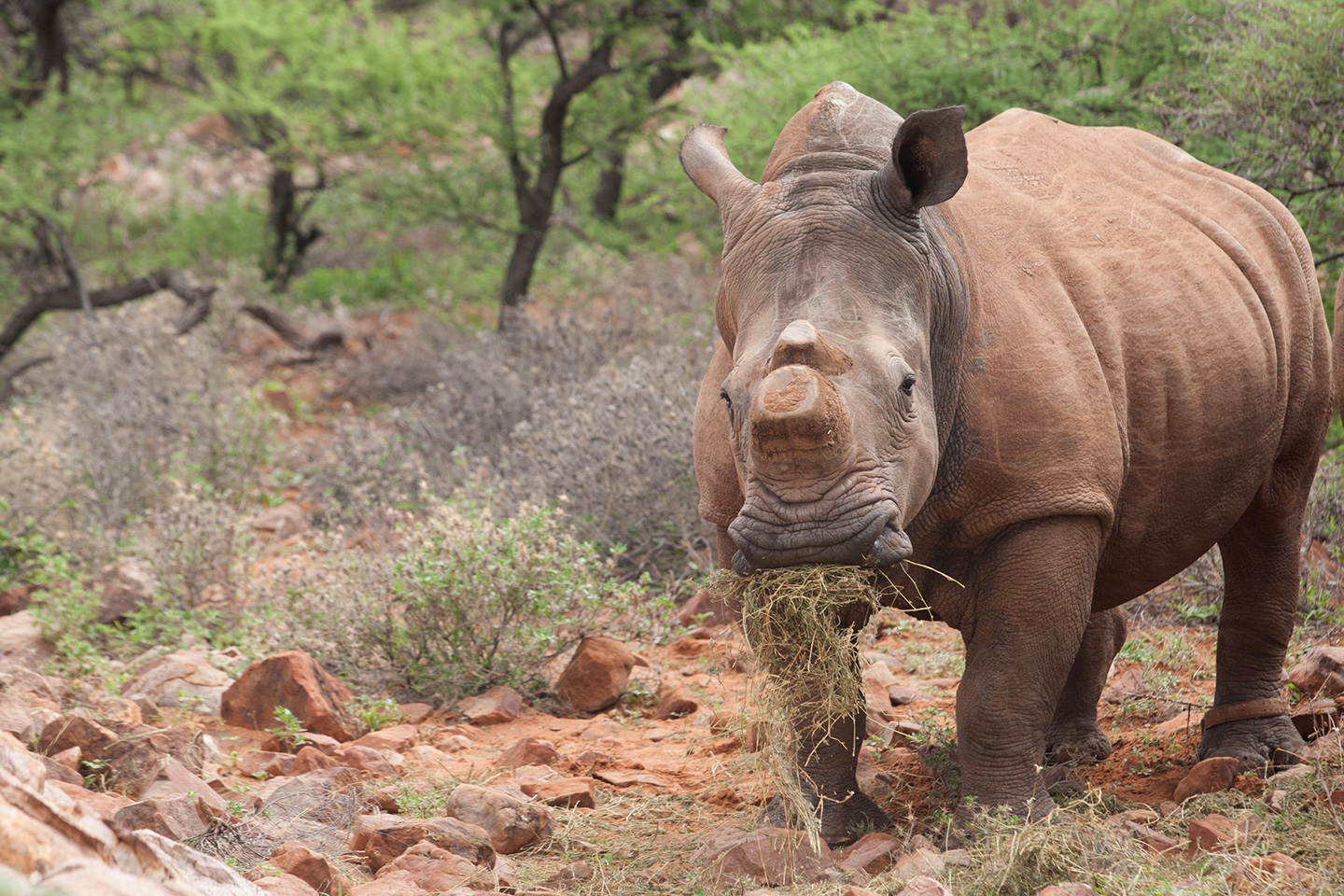
While still with the State Department, Tate happened to be watching CNN one night after work, when a special came on about the Tusk Trust and horrors of African poaching. In a recent radio segment, Tate told former senator Bill Bradley that after seeing particularly gruesome images of dead rhinoceroses and then hearing about how the British royal family had been working to combat poaching, a lightbulb went off. He quickly began laying the groundwork for what would become his own nonprofit organization, Veterans Empowered to Protect African Wildlife (or Vetpaw), which would hire post-9/11 veterans to help train African animal reserve rangers in fighting off poachers.
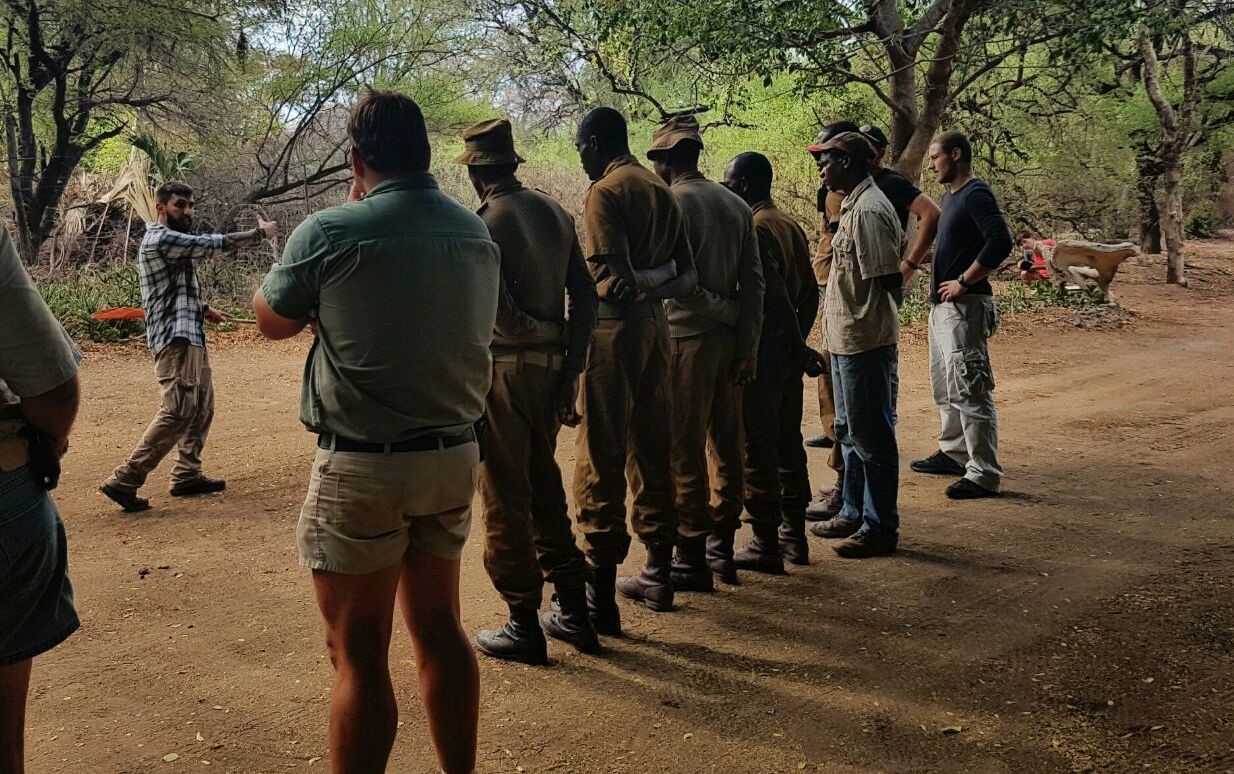
Founded in 2013, Vetpaw currently employs a dozen post-9/11 veterans, and is a diverse group of former soldiers from all walks of life. As an example, Tate’s core team includes Iranian American Azad “Oz” Ebrahimzadeh, a former Army Special Forces green beret, who’s now his executive director of anti-poaching; and Lynn Westover, Jr., a former Marine recon instructor, who serves as his human terrain program director. The nonprofit’s advisory board features a highly decorated group of veterans, including retired Navy rear admiral John H. “Jay” Bowling III and two Congressional Medal of Honor winners. “I [made] sure people were there for the right reasons—not going [to Africa] to cause bodily harm to someone who’s poaching,” says Tate.
All of Vetpaw’s tactical gear and weaponry—vests, uniforms, boots, gun scopes—the organization obtains as hand-me-downs or through generous donations. They’ve even acquired an unmanned aerial drone to help track poachers. “This isn’t SEAL Team Six; we don’t have Uncle Sam’s checkbook,” Tate jokes of his nonprofit’s tiny budget. That said, Vetpaw’s 12 members are highly trained combat veterans, who carry weapons for self-defense purposes. “Fortunately, we haven’t had to kill anybody,” he says, bluntly.
On the other side of that coin, no members of Vetpaw have lost their lives on the job yet, but being killed in this line of work is a possibility. Back in August, a prominent conservationist and ivory-trafficking opponent, Wayne Lotter, who co-founded the PAMS Foundation in Tanzania, was gunned down on his way to the airport. Tate tells us that he’s received death threats in the past.
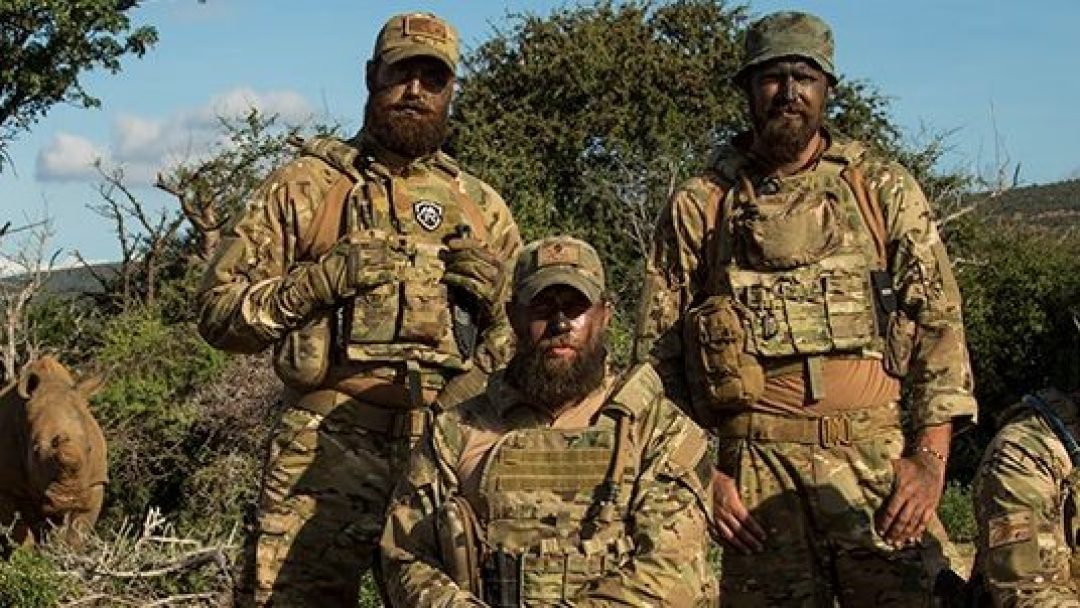
With all that gear, one might get the image of Vetpaw as a private company of camouflaged soldiers setting up ambushes, guns blazing hither and yon, but that couldn’t be further from the truth. Think of Vetpaw more as really intelligent, skilled, and savvy—and of course, badass—advisors. In a supporting role, they work with local police on poacher investigations and help download African park rangers on tactics like “cover and concealment” and basic field medicine, as Tate notes.
Also included in Vetpaw’s purview is the strategic management of resources within the African nature reserves themselves, many of which are thousands of square miles wide. “We’ve got this huge reserve, and we only have 15 park rangers … [locating poachers is] going to be like trying to find a needle in a haystack,” he explains. So they need to identify areas of highest risk and station rangers there with the know-how to bring them down.
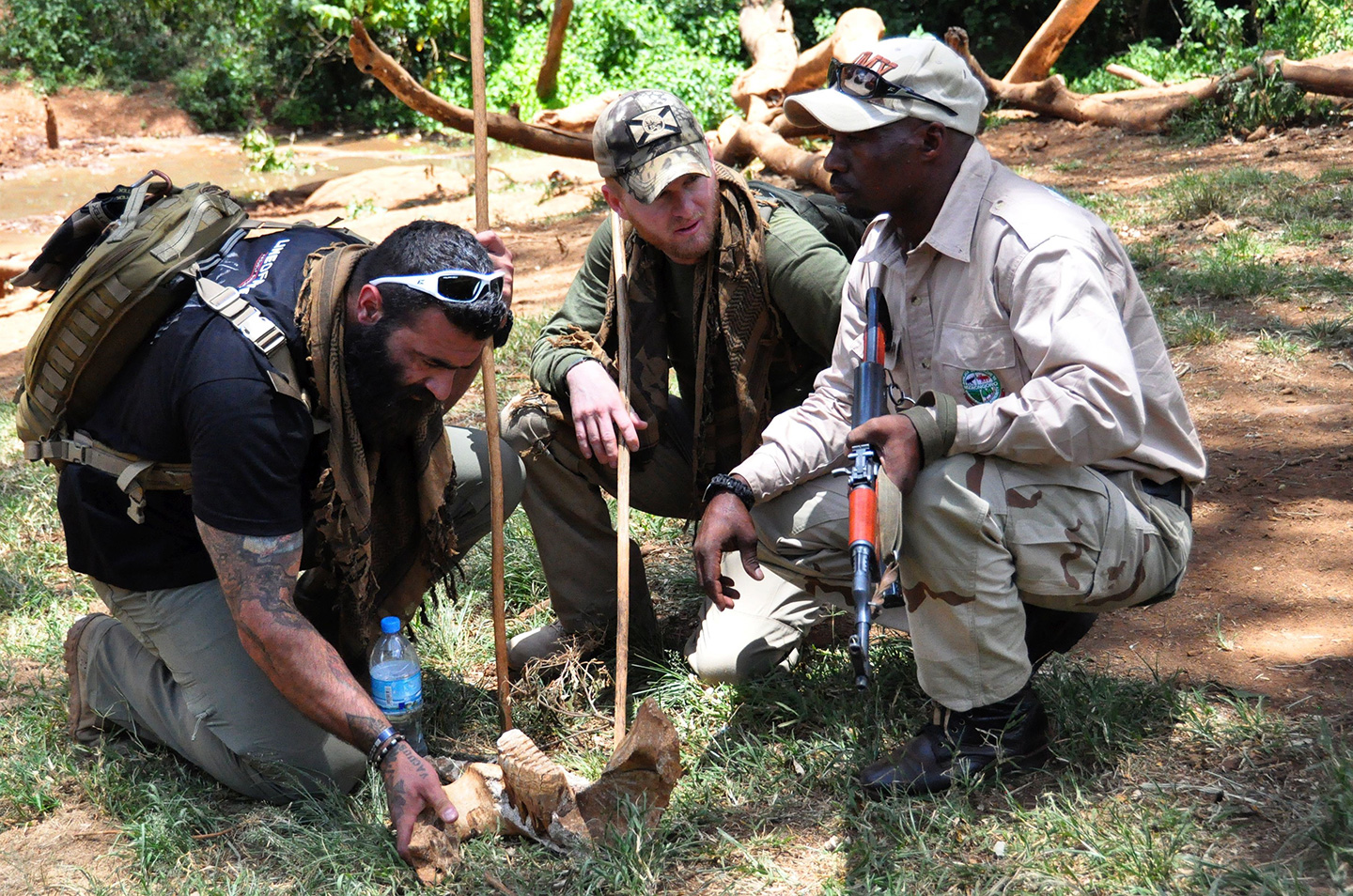
Furthermore, Tate says his team counteracts poaching through community outreach—that is, finding potential local informants within the areas near a reserve, who might help bring poachers to justice or expose them. (Tate says past tactics have involved handing out soccer balls or installing a water pump in a community to gain its trust.) Outreach also includes simply educating people about the ills of poaching. “A lot of these communities don’t have computers and smartphones, and don’t understand how bad poaching is,” says Tate. For one, it could cost you your life: In Botswana, for example, a country in which Vetpaw does not work, African soldiers have the right to shoot poachers on site. In Tanzania, where Vetpaw has been stationed, poachers can be sent to jail for 20 years.

So who exactly are these poachers? In some areas, says Tate, they are just men trying to put food on their families’ tables. “In other areas, these guys have night-vision [goggles], high-powered rifles, they put silencers on their guns. They’re the same people who traffic humans, drugs, and arms and support terrorism,” says Tate. He’s not kidding; some of the jihadist groups who benefit from the ivory trade include Al-Shabaab, ISIS, and Boko Haram.
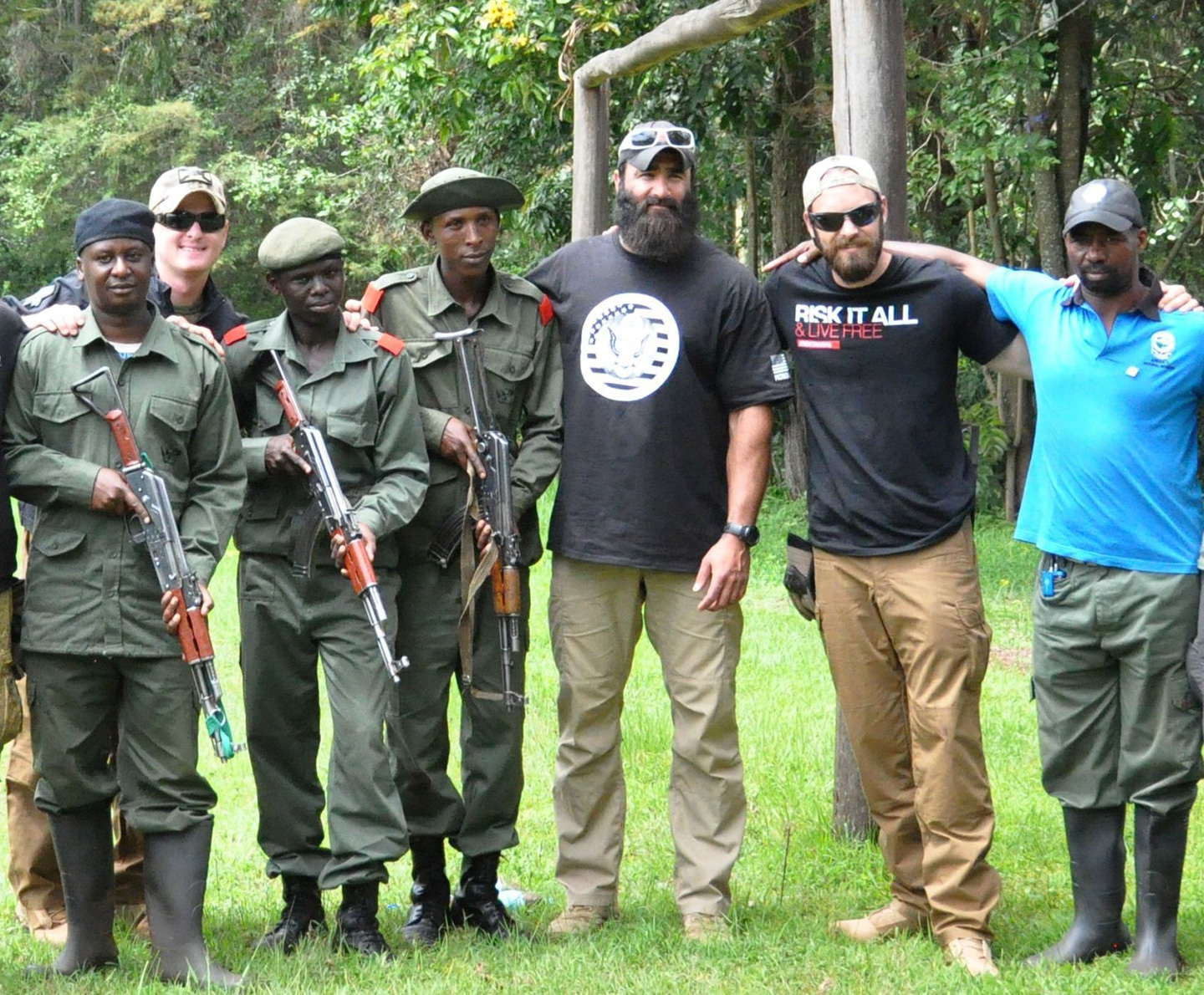
Despite how quickly everything came together for Tate and Vetpaw, the road to success—ultimately, saving animals’ lives—didn’t come without a major test of mettle. In 2015, the nonprofit launched its first mission in Tanzania, helping to train 400 members of the Tanzanian Wildlife Anti-Crimes Task Force, which in turn, led to the capture of 50 suspected poachers. Unfortunately, an internal issue derailed the effort, and Vetpaw was expelled from the country, as Al Jazeera reported at the time. A now-former member of Vetpaw, Kinessa Johnson, was quoted in a YouTube video prior to leaving that her team would be going to Africa to “kill some bad guys and do some good.” The video was posted to Reddit and quickly went viral. (At the time, Animal Planet had also been shadowing Vetpaw in Tanzania, filming what would become Blood Ivory, a docu-series currently airing on the cable network.) Tanzanian authorities caught wind of the controversial statement, and put an end to Vetpaw’s stay. It was a major black eye for the organization, who received a volley of criticism from fellow anti-poaching advocates and organizations.
It was a teaching moment for Tate and his organization. “We were young, and I’d never run my own business or nonprofit,” he admits. “You learn that one misstep in terms of public communications can throw away years of hard work.” (A publicity firm has since offered Vetpaw its services pro bono.) To his detractors, Tate says, “I’ve never viewed the nonprofit world as a competition or business, just as a cause and a calling,” he says. “Unfortunately, others don’t view it that way. They see us as competition, and our biggest downfall is that we don’t see it that way; we’ll work with anybody and everybody.” (Tate says he’s recently been in talks with Tanzanian authorities to return there at some point.)
As of May 2016, Vetpaw bounced back, starting a second mission in South Africa, focusing on protecting rhinos in Kruger National Park and KwaZulu-Natal, a province known for its wildlife (last year, 1,054 rhinos were slaughtered for their tusks in South Africa alone). Does this spell redemption for Vetpaw? “Without these men and women,” says Tate of his team, “those animals would be dead. And that’s all the validation I need.”
This article appeared in an InsideHook newsletter. Sign up for free to get more on travel, wellness, style, drinking, and culture.
